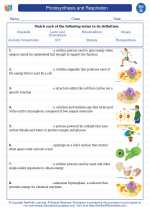Immune System
The immune system is a complex network of cells, tissues, and organs that work together to defend the body against harmful invaders, such as bacteria, viruses, and other pathogens. It is a crucial component of the body's defense system, helping to maintain overall health and well-being.
Functions of the Immune System
The immune system performs several important functions, including:
- Identifying and neutralizing harmful pathogens
- Recognizing and destroying abnormal cells, such as cancer cells
- Remembering previous encounters with pathogens to mount a faster and stronger response in the future
- Regulating the immune response to prevent damage to healthy cells and tissues
Components of the Immune System
The immune system is comprised of various components, including:
- White blood cells (leukocytes), such as lymphocytes, neutrophils, and monocytes
- Antibodies, which are proteins that specifically target and neutralize pathogens
- Lymphoid organs, such as the thymus, spleen, and lymph nodes, where immune cells are produced and matured
- The lymphatic system, which is a network of vessels and organs that helps transport immune cells and fluids throughout the body
Study Guide for the Immune System
To study the immune system, it's important to understand the following key concepts:
- Types of Immunity: Familiarize yourself with the different types of immunity, including innate immunity (nonspecific defense mechanisms) and adaptive immunity (specific defense mechanisms).
- Immune Cells: Learn about the various types of immune cells, their functions, and how they work together to mount an immune response.
- Antibodies: Understand the structure and function of antibodies, including how they recognize and neutralize specific pathogens.
- Immune Response: Explore the process of how the immune system responds to infections, including the steps involved in recognizing and eliminating pathogens.
- Immune Disorders: Study common immune disorders, such as autoimmune diseases and immunodeficiency disorders, and their impact on overall health.
By mastering these concepts, you'll develop a solid understanding of the immune system and its role in protecting the body from disease.
Remember to review the material regularly, engage in active learning strategies (such as summarizing content in your own words), and seek clarification on any challenging concepts to reinforce your understanding of the immune system.
.◂Science Worksheets and Study Guides Seventh Grade. Photosynthesis and Respiration
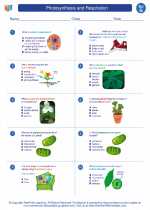
 Worksheet/Answer key
Worksheet/Answer key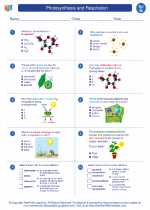
 Worksheet/Answer key
Worksheet/Answer key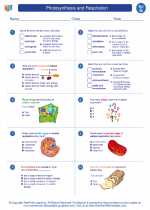
 Vocabulary/Answer key
Vocabulary/Answer key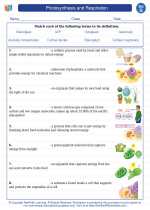
 Vocabulary/Answer key
Vocabulary/Answer key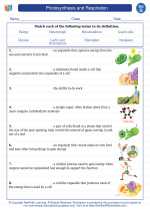
 Vocabulary/Answer key
Vocabulary/Answer key